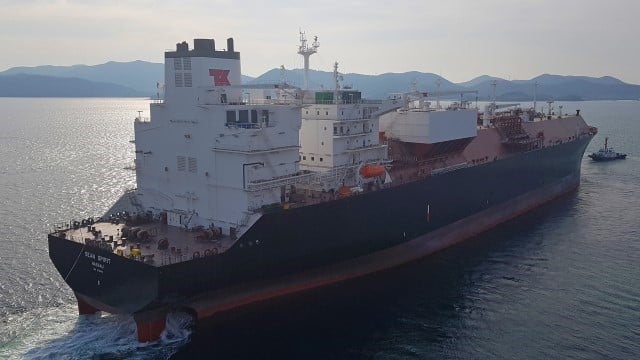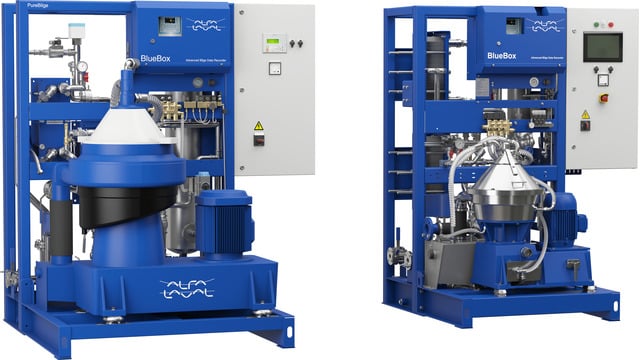PureBilge
Alfa Laval PureBilge is a fully automated centrifugal separation system that cleans oily water on board vessels at sea and ashore. By effectively removing oil pollution well below 5 ppm - far tougher than the 15 ppm IMO requirements - it sets a new standard in making water safe for discharge overboard.
Reliable, efficient, continuous
- Compact, modular, easy-to-install system saves time, space and money
- Continuous, single-stage operation requires less holding tank volume and provides more payload capacity
- Reduced operating costs thanks to low maintenance, automated control, minimal waste disposal, no chemical consumption and no disposable filter element
- Unaffected by sea heave, oil shocks or high solids loading
- Password-locked switch ensures only those responsible for environmental compliance may authorize discharge
Centrifugal separation means oily water discharge compliance
With a fleet of greater than 100 vessels, Teekay is one of the major marine actors in today’s energy sector. The company takes no chances with environmental compliance, especially when it comes to oily water treatment. A large number of Teekay’s vessels rely on centrifugal separation and oily water treatment systems from Alfa Laval.

How it works
PureBilge is a fully automatic, all-in-one system with a pumping stage, preheating stage and a centrifugal separation stage. It is complete with full process control and monitoring. PureBilge comprises a BWPX 307 high-speed separator, a control cabinet housing an EPC 60 bilge process controller, a valve and pipe rack and a feed pump module.
A feed pump with variable-frequency drive control directs oily water into the PureBilge system from the oily water holding tank.
After passing through a strainer that traps large particles, the fluid passes through a heat exchanger that raises its temperature to the required level for optimum separation efficiency (generally 60-70ºC).
A three-way changeover valve then directs the fluid to the separation stage if all process conditions - such as feed temperature, feed pressure and separator speed - fall within pre-set process values. If any condition is not met, the valve re-circulates the fluid back to the oily water settling tank.
The patented XLrator spiral flow inlet device gently accelerates the oily water into the separator bowl with minimal shearing and foaming. This greatly improves separation efficiency by preventing oil drops splitting and emulsions forming. This is the key to PureBilge's superior performance compared to other centrifugal separation-based systems.
Options that simplify installation and maintenance
PureBilge is available in two standard versions:
- PureBilge 2515: 2 500 l/h, 15 ppm
- PureBilge 2505: 2 500 l/h, 5 ppm
- PureBilge 5015: 5 000 l/h, 15 ppm
- PureBilge 5005: 5 000 l/h, 5 ppm
Choose from a range of options to meet your requirements and on-board conditions:
- 5 ppm certificate
- Heat recovery
- Safety box
- Sludge removal kit
- CIP unit
- Chemical dosing unit
- Remote control
The PureBilge disc-stack centrifugal separator rotates with a gravitational force of 6,000 G generated at 8,000 rpm. Oil and emulsions are separated from the oily water and discharged continuously through the oil outlet. Solids that collect at the separator bowl periphery are discharged intermittently at pre-set intervals and are directed to a collecting tank for sludge or waste oil.
A built-in water pump, or paring disc, continuously discharges separated oily water via the clean water outlet. The destination depends upon its oil content - an oil-in-water monitor tracks this continuously at an isokinetic sampling point. If the oil content is below the alarm limit, which can be set from zero to 15 ppm, the separated oily water can be pumped directly overboard or into a clean water tank for discharge later. If the oil content exceeds the ppm limit, the effluent is returned for reprocessing.
The automated control and monitoring integrates with existing Alfa Laval systems, giving you a single, user-friendly interface.
Bilge water compliance issues
An Alfa Laval white paper on oily water separation


